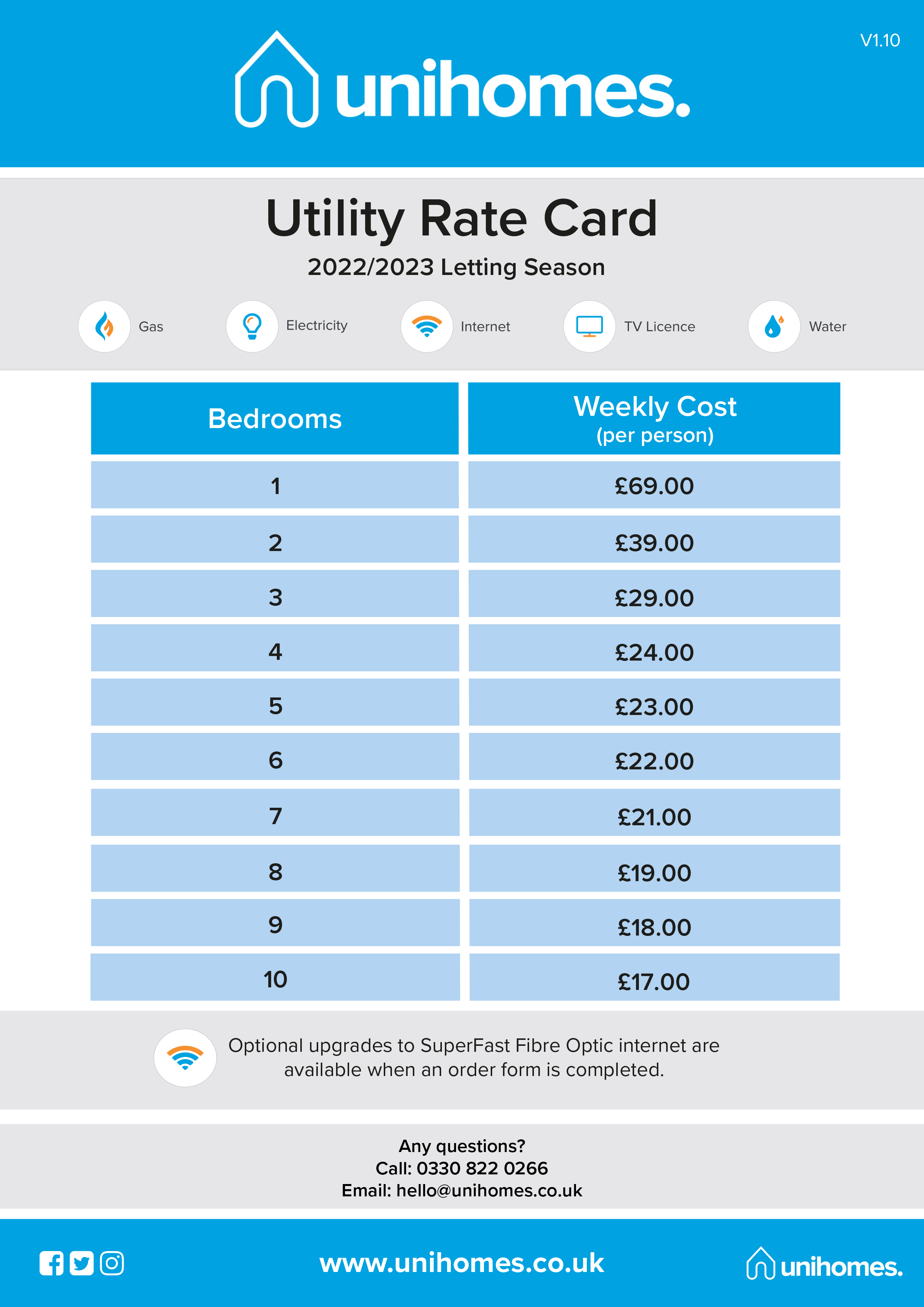We will ask for your address history for the last three years and we will complete a credit check on each individual tenant. We will also require a reference from your existing Landlord or Letting Agent (if you are currently renting) as well as a written reference from your employer. If you are self-employed, we will ask for an accountant’s reference and the most recent set of submitted accounts, in addition, we will ask for three months bank accounts.
We will also require your Right to Rent documentation as detailed here: Landlord’s guide to right to rent checks (publishing.service.gov.uk)
The tenancy that you sign will be an Assured Shorthold Tenancy, which means that you can stay in the property for the period of the contract (provided you meet all the obligations of the tenancy). If the landlord wishes to end the tenancy you will be given two months’ notice to quit the premises.
Please be advised that during the Covid - 19 Pandemic, the Notice period has been extended to three months notice.
Here at Norman Galloway Sales & Lettings, we use a standard tenancy agreement for all of our lettings. Sometimes it will be signed by us, the agent and sometimes it will be signed by the landlord. All of our tenancy agreements are signed by e-signature for your convenience. If you have a guarantor they will also be included on the tenancy agreement and will also need to sign it for it to be accepted as valid by the landlord.
It may also have additional special clauses included, which are specific to your tenancy, such as; permitted occupier details, the maximum number of people allowed to live at the property, details of any white goods that may be included in the tenancy, etc.
Please find below a draft copy of our standard tenancy agreement for you to consider.
We have an obligation to conduct regular inspections of all tenanted accommodation. This is to ensure the property is not in need of repair, that you are looking after the property and discuss any problems you may be experiencing. You will be given at least 24 hours notification when an inspection is due to be conducted.
We will inspect all properties at least once every 6 months.
Please know, that property inspections are for your benefit as much as your Landlord's, so your cooperation is encouraged - after all, it's not very often and the Inspector may pick up issues for your Landlord to address that you had not even been aware of.
We found that many tenants worry about repairs, often believing, that landlords don’t care or that they will increase the rent if they have to spend money on a repair. We are landlords ourselves and know this is not true for most landlords. Therefore, we have invested heavily in a 24/7 reporting system with full back end support. All of our tenants can get the latest advice and easily report a repair or maintenance issue in over 42 languages at any time.
Key features
24 hours / 365 days per year
Choose from over 42 Languages
Out of Hours Emergency Response
“How to Guides” where you can fix the problem yourself
Quicker Repairs and Maintenance
Response to Request Within 5 Minutes
In the event of any maintenance being required, simply, complete the online Repair Report at the earliest possible time in order to minimise any problem that could subsequently arise. Your Landlord will be notified straight away of the issue, and their instruction sought to rectify the problem as soon as possible. Simple precautionary procedures should then be taken by you/the tenant, to prevent any additional problem arising e.g. turn off water at the stopcock if necessary, isolate electric or gas supplies at the mains where required.
This is one of those questions that tenants and landlords dread, in equal measure. Tenants may have a beloved pet that is part of their family and will want to ensure that they can take them to their new home with them. Landlords may be terrified that tenants will allow their pets to destroy and damage their property. Both points of view are valid and reasonable. To make life easier for both the tenant and the landlord we state that you cannot have any pets unless you have written permission from your Landlord/Norman Galloway Sales & Lettings.
You must consult us before obtaining a pet and submit a written request to have a pet stating age/type/breed.
Find out more in the following blogs:
Can A Landlord Refuse Pets in The Uk?
You can also find our policy here:
YES! You should consider taking out contents insurance to cover accidental damage to the Landlord’s contents, buildings, fixtures and fittings. The landlord is responsible for insuring the building.
You are also advised to consider contents insurance for your own possessions.
The Deposit normally equates to 5 weeks rent and will be held throughout the tenancy in a government-approved deposit scheme and will be returned at the end of the tenancy subject to the property being left in a good condition without any claim for potential damages beyond fair wear and tear.
Take a look at our blog for a bit more guidance on what is considered as fair wear and tear:
As a tenant, you are responsible for ensuring that the rent is paid in full and on time. We advise our tenants to consider setting up a standing order for the rent each month, which will mean payments are paid directly from your bank to our designated account. We advise our tenants to set up their standing order to leave their account a couple of days before the rent is due, to ensure that it appears in the landlord/agent account as cleared funds on the day that the rent is due.
You will need to cancel the standing order at the end of your tenancy when all your rents have been paid up to date.
It is also worth considering, that once you enter into a tenancy agreement, you are liable for paying the rent for the duration of that tenancy. Whether you live there or not. This will be either at the end of the fixed term or at the end of the notice period and once you have surrendered all keys. Please be mindful that if you are intending to leave the property you must give the landlord/agent the appropriate notice in writing. Do not fall into the trap of assuming that it is 4 weeks notice/a months notice. Most tenancies require a full rental period notice to quit after the fixed term has ended and the tenancy has moved on to a periodic tenancy. That means you must give notice in writing at the latest the day before your rent is due to end your tenancy by the end of the next month.
If you are paying your rent through benefits, don't assume that just because you have moved into a new property and changed your claim to that address that you are no longer liable for the rent at the previous address. You are and your landlord has every right to chase it through the court process. This may result in a CCJ if you do not pay your arrears.
If you are finding yourself struggling to pay your rent, seek advice straight away. Also, notify your landlord/agent. Whilst you are liable to pay your full rent regardless of your personal circumstances, your landlord may agree to a payment plan. They may also be able to point you in the right direction to get help and guidance regarding your financial situation.
If your financial situation has changed significantly and is unlikely to change in the foreseeable future, you may wish to reassess your affordability to live at that address.
Utility bills, including Council Tax, is your responsibility unless stated otherwise in the tenancy agreement. You can change your energy supplier if you wish, however you are not permitted to change the type of meter, for example from a pre-payment meter to a credit meter and visa versa.
You will be required to ensure that all utility accounts are closed when your tenancy ends and that your utility bills are all finalised and paid in full.
Students will need to provide proof that they are students in order to claim the Council Tax exemption.
Once the Landlord has agreed to accept your application (subject to references and contract) we will ask for a holding deposit equating to one week’s rent.
Upon successfully passing the referencing stage of the application, the holding deposit paid will count towards the total balance of rent and deposit owed before the tenancy start date. You risk losing your deposit in the event that;
The agent/landlord has to write to you within 7 days explaining why they are keeping the holding deposit.
We expect that all checks, payments and signatures are completed within 15 days from the date that you have paid your holding deposit. As all signatures are completed online, we feel that this timescale is fair and reasonable.
Paying your holding deposit does not secure the property at this stage - it essentially shows that you are serious and that you are going to the next stage of the application, which is the formal reference checks.
You have 15 days from when you pay a holding deposit to enter into a tenancy agreement. This is called the deadline for the agreement.
It is essential that you provide all information as quickly as you can and pay all monies as they become due. If you can consider a tenancy with 7 students for example, that will require 14 people to be reference-checked, and 14 people to pay, and then subsequently sign the tenancy agreement one after the other, one person failing to do their bit on time holds the entire process up and puts everyone's else's holding deposit at risk.
We would urge you to contact us at your earliest convenience if there is anything concerning you or if you have questions.
It’s not a problem if you are claiming Housing Benefit/Universal Credit, so please don’t worry. The main advice we can give you, is to complete the application form honestly and include as many details as possible about all of the income that you get.
We will look at the Local Authority Housing Rates that you will be entitled to, so it is important to tell us all about who will be living in the property. This will help us to assist you with your application.
Click the following link to read our blog and find out more:
Please don’t be worried when we ask you for proof of your ‘Right to Rent’ as the law requires us to do this. Every tenant that rents a property has to do this in England. Even if you are a British Citizen. Where you are not an EU Citizen you will be required to provide a vaild visa. Your Landlord has to have proof of the 'Right To Rent checks' for all adults living in the property.
Right To Rent Approved Accepted Documents
List A (Group 1): Acceptable single documents
List A (Group 2): Acceptable documents (any 2)
A letter which:
(a) is issued by a further or higher education institution in the United Kingdom;
(b) confirms that the holder has been accepted on a current course of studies at that institution; and
(c) states the name of the institution and the name and duration of the course.
Option 1
A passport showing that the holder is a national of Australia, Canada, Japan, New Zealand, Singapore, South Korea, or the United States of America.
AND
The latest information on Right to Rent checks can be found here:
Landlord’s guide to right to rent checks (publishing.service.gov.uk)
Anti social behaviour can be annoying at best and totally life changing at worst.
At Norman Galloway Lettings we are very clear on our views around this. Put simply, we operate a nil tolerance approach. Our tenants should have the peaceful enjoyment of their home and their community without feeling the ill effects of anti social behaviour by others. We cannot condone any of our tenants causing anti social behaviour and upsetting those living around them, and nor do we want any of our tenants being the victims of such unacceptable behaviour.
The law takes a very stern view when addressing anti social behaviour.
Antisocial Behaviour Act 2003 and Police Reform and Social Responsibility Act 2011-
Jenrick “courts will carefully prioritise the most egregious cases, including anti-social behaviour, fraud, and domestic abuse, ensuring landlords are able to progress the most serious cases, such as those involving anti-social behaviour and other crimes.”
Wikipedia definition:
Types of anti social behaviour can include but are not limited to:
If you are experiencing the effects of anti social behaviour you can find our policy and help here:
This might seem like an obvious question, it is however hugely important to know the answer.
Depending on where you live, each Local Authority has; different days, different coloured bins and different rules.
As a tenant you are responsible for the disposal of waste in the appropriate bins and putting them out and bringing them back in, on the correct days. Fines can be issued if not.
Recycling responsibly is hugely important, and your Local Authority can provide stickers to help you with this. If you repeatedly put the wrong waste in your bins you may find that your Local Authority will refuse to empty them or may fine you.
Some areas charge for garden waste bins and others don't, so it is worth checking if you have lawns etc. Some Local Authorities collect glass, others don't and you will need to take it for recycling at your local recycling centre. These can often be found in supermarket car parks etc.
When you take on your tenancy with Norman Galloway, you will be advised when your bin days are. You can also find out from your neighbours and the Local Authority if you so wish.
This is a tricky one. In theory, the answer is 'No', it is your choice if you provide a guarantor or not.
That being said, if you are wanting to stand out from the many other applications that an agent will receive, I would definitely try and have a guarantor. A UK homeowner guarantor will strengthen your application further.
A guarantor is a person who will agree to pay your rent if you are unable to and will cover any costs incurred by you for example damage etc. Your guarantor can be anyone you know – a friend or relative – who meets the income requirements of the property and passes all of the reference checks. They will need to sign the tenancy agreement along with you if your tenancy is being set up by Norman Galloway Lettings.
Some landlords will not consider any application without. If you cannot get a guarantor, my best advice would be, to present your application as fully as possible to show that you are going to be a viable tenant regardless. This will include; proof of how you can afford the rent, references from previous/current landlord, employer reference, etc.
Another option might be to consider one of the rent guarantee schemes.
There are a number of rent guarantor schemes out there, and here at Norman Galloway Lettings, we want to make things as easy as possible for you to find the perfect tenancy. If you do not have a guarantor and you would like more information on how you may obtain one via a rent guarantor scheme please follow the link below; Norman Galloway Lettings will make the referral for you should you wish to use this service for one of our tenancies.
Norman Galloway Lettings want to make this easy for you. Being a student is likely to be the first time that you are living away from home. To that aim, we have partnered with Unihomes, an established provider of all inclusive packages to students across the UK. They are able to offer all-inclusive packages to students, below is the rate card for the 22/23 academic year. You just need to have a 52-week contract, and all students on the tenancy included. /

It's really important that we can keep in touch with you and that we have up to date email and phone numbers for you. Lot's of our tenants like to use Whatsapp as they find it quick and easy to use on their phone. We are happy for you to get in touch with us via our Whatsapp 07458313273 if you prefer. Do, however, ensure that you use the correct repair reporting link if you have a maintenance and repair issue.
If you’re renting, here’s what you should know.
The law says you need to be covered by a TV Licence to:
This applies to any device you use, including a TV, desktop computer, laptop, mobile phone, tablet, games console, digital box or DVD/VHS recorder.
If you live in self-contained accommodation, such as a separate flat or annexe, you need your own TV Licence.
A standard colour TV Licence costs £159. price correct at 31/07/2021
Find out about different ways to pay.
Need more help or advice? See our frequently asked questions below.
If you have a separate tenancy agreement for your room you’ll need a TV Licence
Each tenant needs their own TV Licence to watch or record live TV programmes on any channel or device or to download or watch BBC programmes on BBC iPlayer. This licence will also cover communal areas.
If you have a joint tenancy agreement
One TV Licence may cover the whole house.
However, there may be other reasons why you need your own separate licences, such as whether or not you have exclusive access to a toilet or washing facilities. If you are unsure whether this applies to you please contact us (in step 2 of the form click the 'Contact us' button at the bottom) to find out more information.
If you’re a lodger and have a relationship with the homeowner – for example, a family member, common-law partner, a nanny, au pair or housekeeper.
You’re covered by the homeowner’s TV Licence if they have one, but only if you live in the same building. If you live in self-contained accommodation, such as a separate flat or annexe, you need your own separate licence.
If you are unsure whether this applies to you, please contact us (in step 2 of the form click the 'Contact us' button at the bottom) to find out more information.
Your property needs to be covered by a TV Licence, see Residential landlord page for more information.
If you still have questions take a look at TV Licensing FAQs where you can find all the answers in one place.
The above information is taken directly from tvlicencing.co.uk

Changing lightbulbs is a tenant responsibility. Here is a short YouTube video that will hopefully make this an easy task and keep your costs to a minimum.

There's nothing worse than the weather turning cold and our radiators not working as they should. If your heating is on full and your radiators are hot at the bottom and colder at the top, it is likely that there is air trapped in them and they need to be bled. Here is a quick link that will show you how to do it.

Tenants can often have issues with water not going down the shower or bath drain. This is another one of those jobs that is a tenant responsibility and be resolved fairly simply. Here is a short video that you may find helpful.
If you are renting your home and your landlord provides you with a freezer, it is still your job as a tenant to ensure that it is defrosted regularly and definitely at the end of your tenancy. If the drawers break as a result of your failure to do this, the cost to replace them will be yours.
Here's a short video that you may find helpful;

It is so annoying when your sink gets blocked or the water doesn't go down very quickly. This can be avoidable in most instances, even if we don't like to admit it, by being careful not to let food debris or fat go down the plughole. It is oh so tempting to pour fatty liquids or fat left in pans down the sink. This is a huge no no as it builds up in the pipes and becomes rock solid. The result is a blocked sink. If you find that your sink is clogged, here's a short video that may help:
Refund Policy – Property management – Initial payment for inspection and setup is non refundable once service has commenced. Management contract is a minimum term of 12 months and is by monthly installments per letting. Once initial term has expired then one month notice is required to terminate the contract.

At Norman Galloway Sales & Lettings we strive to deliver the best service to; landlords, tenants, buyers and vendors. That said, we accept that we may not always deliver the outcome or service you wanted or hoped for. We do however like to hear if you are not happy with our service and would hope that we can make things right if possible. If you feel that we have fallen short of the service that you think you should receive from us, and the excellent service that we hope to provide, you can raise it with us in the first instance informally, and we will do our best to resolve your concerns. You can call us on 01156972829 or email contact@ngalloway.co.uk.
If it is a case that you are not happy with what you are being advised as opposed to our service, we may not be in a position to alter the message. An example of this would be if your landlord has instructed us to advise you of their intention to claim unpaid rent or for damage, etc via the legal process, or if they are selling the property or increasing your rent, we cannot change that unfortunately but can advise you of your options as we see it.
If you would like to make a complaint about our service please use the following process:
We would hope that we can address any concerns that you have raised, reasonably and fairly.








